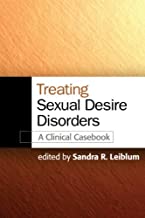Male Hypoactive Sexual Desire Disorder
Resources for Patients and Caregivers
Male Hypoactive Sexual Desire Disorder (MHSDD) is defined in the DSM-5 as persistent or recurrently deficient sexual or erotic thoughts, fantasies, and desire for sexual activity. These symptoms must have persisted for a minimum of six months, and they must cause clinically significant distress.
Cluster Number:
Wiki Number: 27-Male Hypoactive Sexual Desire Order
Diagnosis:
US Patients:
World Patients:
Sex Ratio:
Age Onset: 3
Brain Area:
Symptoms:
Progression:
Causes:
Medications:
Therapies:

